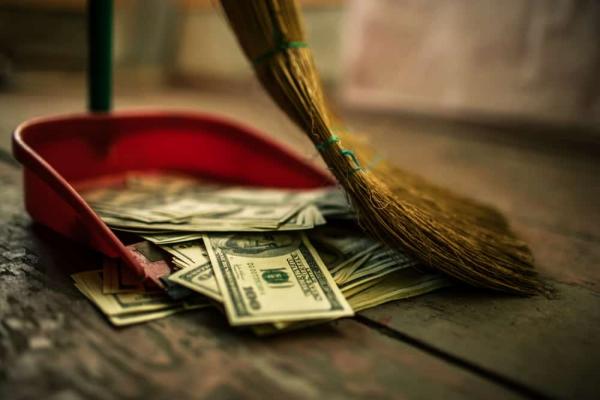
Ever since I was a child, I have been tight with money. I learned from an early age to work hard for my living, and I became very cautious about what I spent my hard-earned money on. I would drive my parents crazy by walking through every store in the mall to ensure I was getting the best deal and to make sure there wasn't something better out there. I knew what I wanted, and I didn't want "buyer's remorse." This trait has served me well into adulthood. I am not an expert with money, but I am pretty good at budgeting, saving and coming up with money when I need it. Every once in a while, I take a good look at what I am spending my money on and can usually find places in my budget where my money could be better spent or not spent at all - instead sitting nicely in my savings account. Here are some things I have found waste money.
Eating out
I'm not suggesting to stop eating out altogether (it happens to be one of my favorite things to do), but eating out eats up a lot of money. If you spend $30 on a meal at a restaurant, you will get a meal for one night (maybe two if you have leftovers). If you take that same $30 to the grocery store, you can buy enough ingredients for at least two meals - with leftovers. As much as I've tried arguing that cooking my own food costs the same as eating out, it is just not true (trust me, no one wanted it to be true more than me). I've crunched the numbers plenty of times to know that making meals saves an average of 50 percent when compared to eating out.
Upsales
Upselling happens when you go to buy one thing and end up buying more than you planned. Perhaps four tires instead of one, a bigger screen on your new television or even two of the same item because there was a sale. Yes, you saved $10, but actually, you just spent $10 more than you planned. Fast food restaurants are great examples of upselling - just look at the dollar menus. You go to the restaurant planning to spend $1-$2, but by the time you leave, you've been upsold to an extra-large value meal, milk shake and four of those dollar menu items. Be strong when you plan to spend money, and just say "no" to upselling.
Interest rates
Everyone knows that when you buy something with a credit card, unless you pay off the balance each month, you will be charged interest. Sometimes there is no way to avoid interest on things like houses or student loans, but there are a lot of other times interest could be avoided. I could tell you only to buy things you can afford to pay for without a credit card, but that is not always a possibility. I do, however, suggest picking a credit card that has a six month interest free period or a relatively low interest rate. Make sure that your credit card limit is something you can pay off within four-six months. In other words, do not get a limit that would be impossible to pay off within a reasonable amount of time.
Impulse buys
An impulse buy is something you did not plan to buy but made a split decision to buy. Impulse buys can be anything from a candy bar at the grocery checkout to a new couch that costs more than two month's salary. Make a list before you go shopping and stick to it. That is the best way to avoid impulse buys. Another idea is to set a spending limit for yourself. If something costs $300 or more, make yourself wait at least a day before buying it, or do some research before spending your money. Shop around, look at comparisons and make sure it is something you really need. You may even find that, once you have left the store, the item becomes less important than you originally thought.
The best of the best
First-class flights, designer clothes, brand-name medicines and 5-star hotels are great - if you can afford them. Unless you can really tell the difference between Tylenol and acetaminophen, you can save some serious bucks by buying generic. Medications lose their patent after a certain amount of time, and then generic names can make the same medications for less. My favorite jeans cost $7.90 at Forever 21. They fit me better than designer jeans and I feel even better knowing I got a great deal on them. The saying "you get what you pay for" can be true, but there are many less expensive items that are literally the exact same as their brand-name counterparts. Shop around before going straight for the name on the package.
Budget, budget, budget
I cannot stress enough about keeping a budget. I write down EVERYTHING I spend. Keep written records. When something doesn't add up, compare your written record with your bank account. I have found discrepancies that I've disputed (and won) because of the records I've kept. Budgeting is also a great way to see what you are really spending your money on. Maybe you're not realizing you spent $45 last month on lotto tickets and smoothies. Budgeting helps keep you on track and forces you to consider each swipe of your card.

